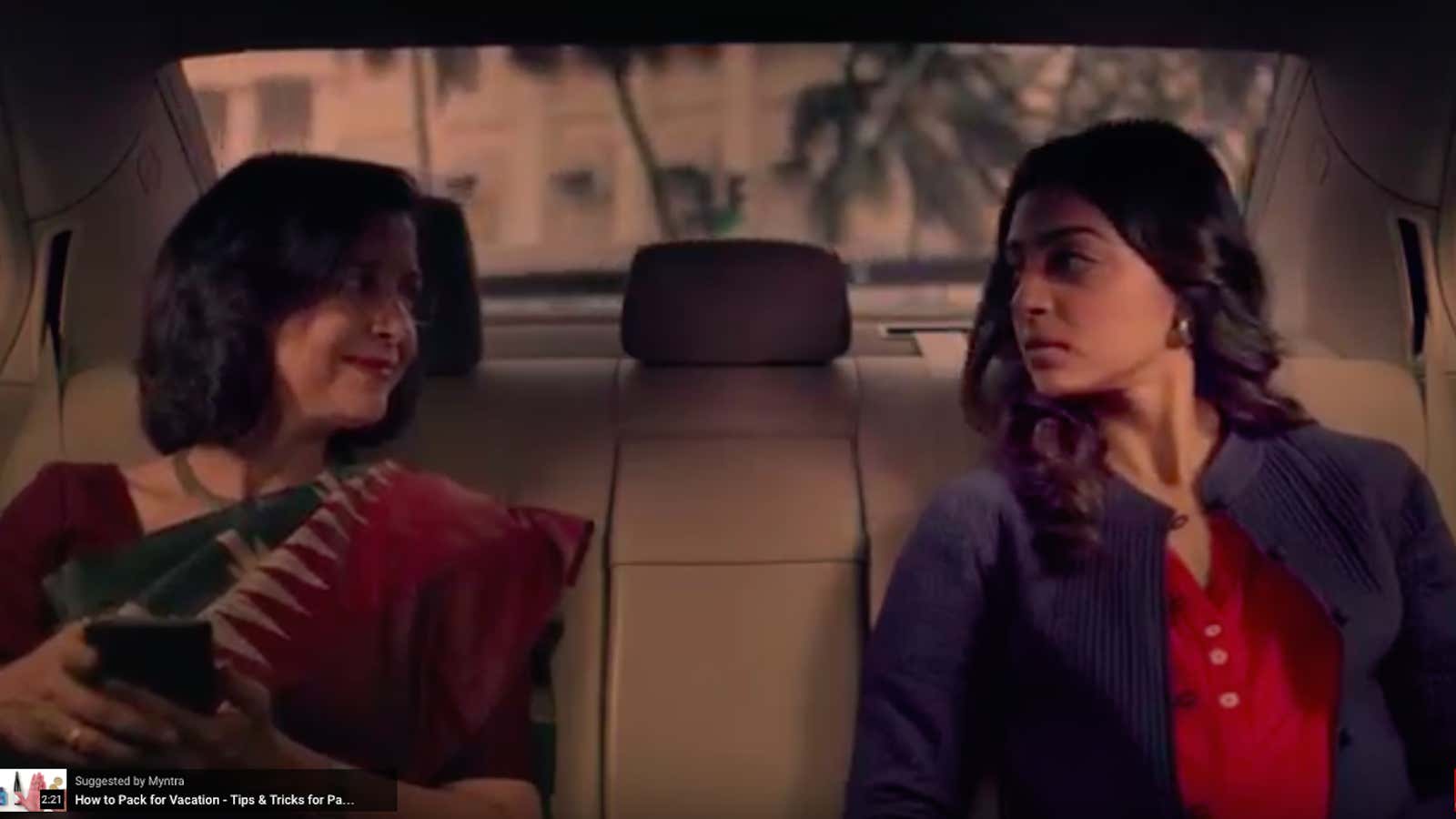For a few years now, technology startups have been disrupting the way urban India shops, commutes, eats, banks, and even dates. These new companies, known for their first-generation CEOs, tech savvy employees, and global ambitions, have also ushered in a work culture that would have been unthinkable in the era of India’s stodgy, family-run businesses.
All the more curious, then, that so much of the advertising for these companies is such a throwback—especially in terms of how women are portrayed.
Exhibit 1: Babes of ’03 by Hike Messenger
This ad from Hike, a WhatsApp-like messaging app, plays on the stereotype that women always have to compete, compare, and undercut one another. Adding insult to injury, the women in the commercial—depicted as spoilt and upper class—seem to care about one-upping their “friends” only in two departments: boyfriends and children.
Exhibit 2: Freedom Week by Snapdeal
This ad shows a man rapturously celebrating the news that his wife is away for a whole week. As Quartz noted previously, the commercial is based on the widespread assumption that wedlock suffocates men, forcing them to live under the thumbs of their dominating, killjoy wives.
Exhibit 3: Spend More Time with Mom/Learning to Cook by Zomato
Zomato’s two new ads show how food can bring families together. But they also rely on old tropes. In the first, a middle-aged man is sweetly incapable of making even something as simple as pasta for his teenage daughter, the underlying assumption being that cooking is a “woman’s job.” In the second ad, a woman stereotypically tries to shower love on her son by rushing to the kitchen to whip up a meal for him.
The problem with these ads is not that they are egregious—most of them aren’t. But they are insipid in their validation and promotion of outdated stereotypes. Why is it that these pioneering startups are not able to think outside the box when it comes to marketing?
Thankfully, in the last two months, two startups have finally shown that it’s possible to move beyond sexist clichés to thoughtful stories that capture the pulse of modern, young India.
This ad above, by online marketplace OLX, shows a young woman who is driven to and from her workplace daily by her husband. She is uncomfortable about being so dependent on her spouse, and seeing her unhappiness, her husband sells his bigger car to buy two smaller ones—one for each. The ad, called Aadhe Tere, Aadhe Mere (half yours, half mine) emphasizes the idea of equal sharing of resources between the husband and wife.
Last week, online fashion store Myntra launched a new ad called “The Calling”—it shows the prejudices that working women face in the corporate world after they get pregnant. In a conversation with her boss, the protagonist, an architect, protests that she was denied a promotion because she is going to be a mother. In the end, she tells her boss she won’t stay at the firm and is starting up her own. The tagline: Bold is beautiful.
This isn’t the first time Myntra has made a progressive commercial. In May of this year, the brand made a short promotional ad about a live-in lesbian couple preparing to tell one set of parents about their relationship. Considering that homosexuality is still illegal in India, it was a brave move by the shopping website.
Now, “The Calling” has been trending on Twitter, with most users posting positive reviews of the ad. If nothing else, it has started a conversation about maternity leaves in India.
Not everyone is impressed, though. Some commentators argue the ad is elitist and unrealistic. After all, how many women have the option of talking back to their bosses, or the money to start on their own firms? But this is an advertisement. It is supposed to occupy a zone between reality and fantasy, targeting emotions, and calibrating aspirations.
If somewhere along the way, the makers throw in a dash of progress, this shouldn’t be seen as a problem.
We welcome your comments at ideas.india@qz.com.
